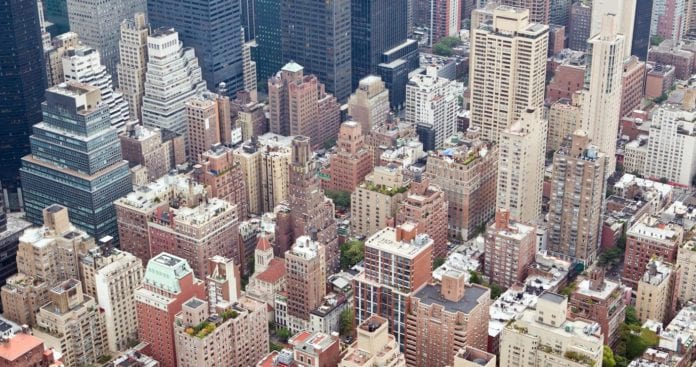The most-populous market in the U.S. — New York City and its surrounds — is also the fastest, according to a new ranking of metropolitan cellular networks by Rootmetrics.
New York City’s aggregate median download speed of 46.3 Mbps was the fastest in the country, bolstered by a 72.0 Mbps carrier speed from Verizon that was the second-fastest speed recorded by Rootmetrics during the second half of 2020. Only a 77.5 Mbps speed clocked on AT&T’s network in Kansas City, MO, was faster.
Of the top 10 largest U.S. metro areas, only three of them made the top 10 in terms of median market speeds: NYC, Philadelphia, PA (ranked third-fastest out of 125 U.S. markets) and Washington, D.C. (9th out of 125).
So being in a large market doesn’t guarantee that the carriers are necessarily digging deep to offer their best speeds. Los Angeles, California, the second-most populous market, was ranked 62cd in speed. The top five markets by population were rounded out with Chicago, Illinois ranked 32cd; Miami, Florida ranked 81st and Philadelphia.
Based on Rootmetrics’ testing, the fastest five metro areas across the country in the second half of 2020 were: NYC; Seattle, Washington; Philadelphia; Baltimore, Maryland; and Concord, California, with a population of around 616,000 and aggregate median download speeds of 43.9 Mbps.
The rankings are based on aggregated median download speeds (4G and where available, 5G) across the networks of AT&T, T-Mobile US and Verizon in each market, with the markets then ranked from fastest to slowest. So slow performance from one or more carriers could mask fast speeds from one, or vice versa. For the full ranking of all 125 markets, see the infographic here.)
Rootmetrics called out a couple of small markets with standout speeds: In Lansing, Michigan, Rootmetrics recorded an average median download speed of 43.7 Mbps across the three national carriers’ networks, and in Fayetteville, NC, that figure was 42.5 Mbps. Those two cities were ranked 6th and 10th for speed out of the 125 metros tested.
“With generally outstanding carrier speeds in each city, both of these relatively small metros were home to faster speeds than several exponentially larger ones, including Atlanta, Chicago, Dallas, Los Angeles, and Pittsburgh, to name a few,” the benchmarking company noted.
Other finds from the report:
-In the top 10 most populous markets, the fastest carrier was either AT&T or Verizon. The speeds on the fastest carrier in those large markets varied wildly, from the 72.0 Mbps on Verizon’s network in NYC to 39.4 Mbps on Verizon’s network in Miami, FL.
-However, the aggregate speeds in the fastest markets were very similar: Only about 2 Mbps separated NYC from other cities with fast networks, such as Seattle and Philadelphia.
-The aggregate speeds in the slowest metro markets were also quite similar, within about 2 Mbps of each other: Fresno, California, came in at a mere 18.8 Mbps; Madison, WI at 19.3 Mbps; Antelope Valley, CA at 20.0 Mbps; Stockton, CA at 20.4 Mbps; Reno, NV at 20.5 Mbps; and Victor Valley, CA at 20.9 Mbps.
“As 5G deployments continue and existing 5G networks expand and mature, overall speeds should rise, and it’s likely that we’ll see greater speed parity in cities across the country going forward,” Rootmetrics said.

